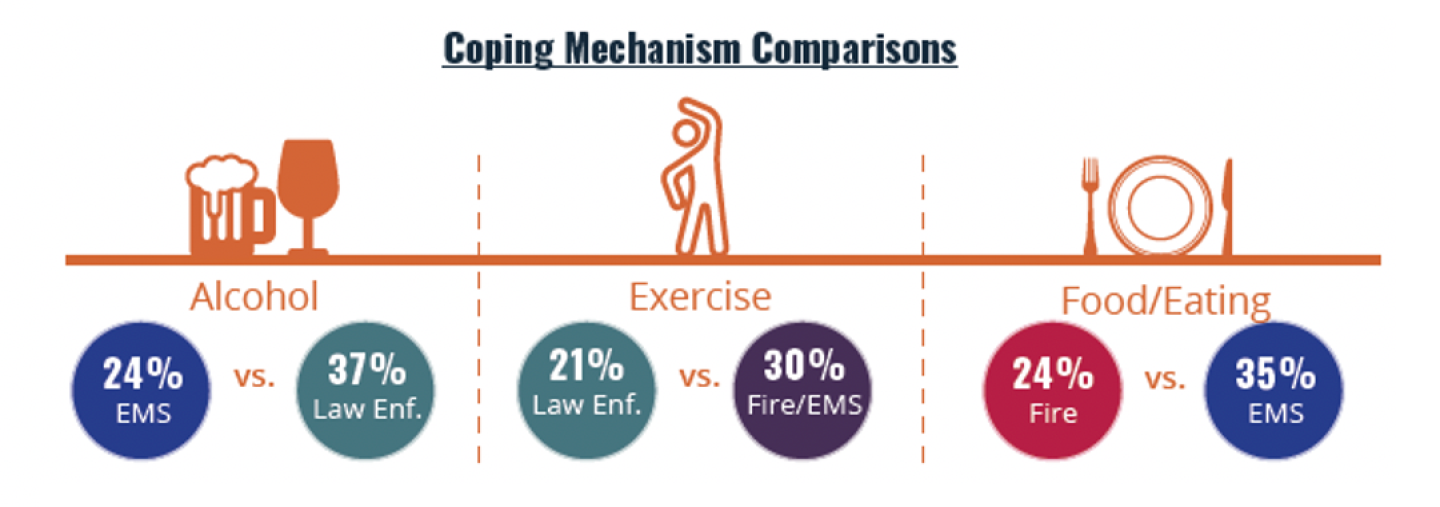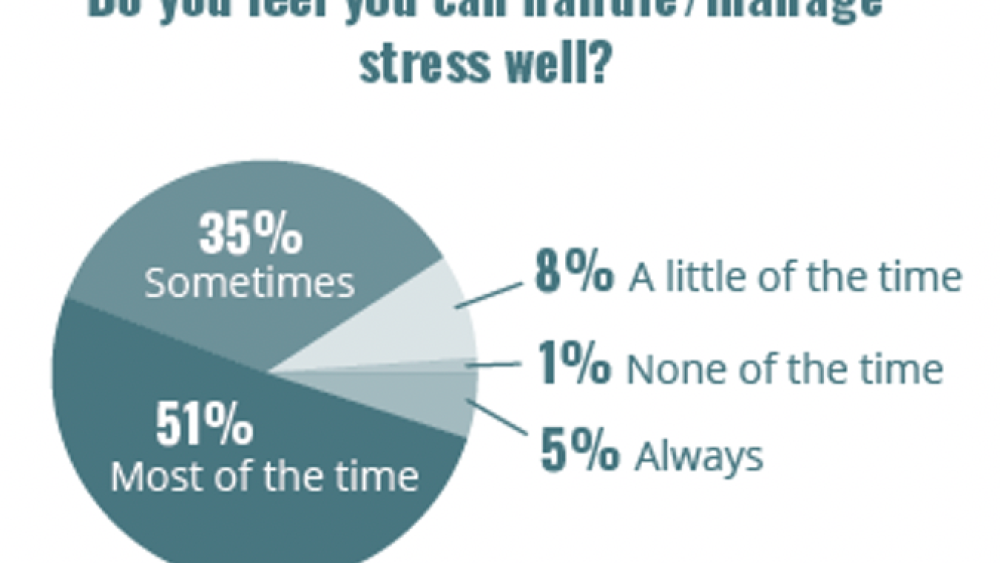Stress is an inevitable part of life and can stem from family, work, finances, health or a multitude of other factors. In the world of emergency response, stress can be even more frequent and intense compared to other occupations. Stress can not only negatively impact our mental health, but also our physical health. This combination creates a trifecta, where stress, mental health and physical health continue to affect one another. Adopting appropriate and effective coping mechanisms can play a huge part in combating the effects of stress.
There are two types of coping mechanisms: emotion-focused and problem-focused. Understanding the differences between these coping mechanisms can help the individual realize what they lean towards and how organizations can provide appropriate resources for each type.
- Emotion-focused coping. This type of coping utilizes reduces stress-induced emotional responses. This can include techniques that reduce or remove feelings of fear, anxiety, depression, frustration and others. Drug therapy, journaling, suppression, distraction, mindfulness, eating, drinking alcohol and drug use are examples of emotion-focused coping. Overall, this type of coping has been found to be less effective than problem-focused coping – and can cause additional problems, like substance or alcohol addiction – but may reduce stress in situations where the stressor is out of one’s control.
- Problem-focused coping. This type of coping aims to remove or reduce the stressor. It is considered the best coping mechanism, as it deals with the cause of the stress. This includes techniques such as problem-solving, time-management and seeking social support.
Examining the data on first responder stress
We all know that there is a lot of stress in the emergency response industry, but it is important to back that up with data. According to Bentley et al., 69% of EMS professionals reported they do not have enough time to recover between traumatic events [2]. A 2020 study – “Health of our emergency responders: A CrewCare report – Volume 2,” authored by ImageTrend’s Clinical & Research Services Team – looking at almost 5,000 emergency responders reported average weekly stress was moderate (57%), severe (15%) or very severe (3%). This report found that 55% of survey respondents reported their job to be very stressful and another 44% reported their jobs to be their main stressor [3].
Those who used exercise to cope with stress were almost three times more likely to have low stress (none or mild) levels and those who used alcohol to cope with stress were over two thirds less likely to have low stress (reported as none or mild) levels [3].
When comparing different occupations within the emergency responder industry, coping techniques varied. Only 24% of EMS providers utilized alcohol for coping with stress, compared to 37% of law enforcement. Another 30% of fire/EMS professionals utilized exercise as a coping technique, while only 21% of law enforcement used it. Lastly, eating as a coping strategy was common in EMS providers at 35% compared to 24% in firefighters [3].
Stress management strategies: For the EMS agency
Survey results found that only 56% of emergency responders said they could manage/handle stress always or most of the time. This number is an indication that agencies could do more to offer resources that provide positive coping techniques to their providers. It is especially important for agencies to want to combat the effects of stress to help reduce burnout and staff turnover. Some type of burnout (career and/or current position) was felt by 47% of emergency responders [3]. There was up to a 56% less risk for burnout for individuals that felt they had sufficient mental health resources through their employer [3].
Peer-to-peer support has been an increasingly popular resource for managing stress and connecting with individuals who can relate with similar experiences. Individuals were six times more likely to have low stress if they felt they had high levels of coworker support [3].
Stress management strategies: For the EMS provider
Utilizing resources offered by your agency is a good place to start to reduce stress, but often, these can be limited and may not always fit what works best for you. Finding resources can seem challenging sometimes, especially when trying to keep anonymity. While not all of these techniques are possible, here are some suggested actions you can take to help combat stress [4]:
- Work in teams and limit amount of time working alone
- Limit working hours to no longer than 12-hour shifts
- Write in a journal
- Talk to family, friends, supervisors and teammates about your feelings and experiences
- Practice breathing and relaxation techniques
- Maintain a healthy diet and get adequate sleep and exercise
- Know that it is okay to draw boundaries and say “no”
- Avoid or limit caffeine and use of alcohol
The domino effects of stress
Stress can have a domino effect on your life by wearing on mental and physical health, which can then impact families, work and overall wellbeing. Addressing stress is crucial within the emergency responder industry due to the higher and more frequent levels of stressful experiences. It is not only the responsibility of the provider, but also their agency, to find opportunities and resources that support emergency responders.
Read next: First responders, COVID-19 and stress: Tips for finding peace
References
- Lazarus, R. S., & Folkman, S. (1984). “Stress, appraisal, and coping.” Springer publishing company.
- Bentley, M. A., Crawford, J. M., Wilkins, J. R., Fernandez, A. R., & Studnek, J. R. (2013). An assessment of depression, anxiety, and stress among nationally certified EMS professionals. “Prehospital Emergency Care,” 17(3), 330–338.
- Anderson, MK & Butler, DG. ImageTrend Clinical & Research Services. Health of Our Emergency Responders: A 2019 CrewCare Report. Lakeville, Minnesota, 2020.
- Centers for Disease Control and Prevention. Emergency Responders: Tips for taking care of yourself. March 19, 2018.







